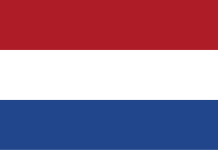President Muhammadu Buhari, on Tuesday, October 4, sent the 2017, 2018 and 2019 Medium Term Expenditure Framework and Fiscal Strategy Paper, MTEF & FSP to the National Assembly for approval.
In a letter dated Friday, September 30, 2016, personally signed by the President and addressed separately to both the Senate President, Bukola Saraki, and House of Representatives Speaker, Yakubu Dogara, the projected total budget stood at N6,866,335,052,740 for 2017.
Buhari said with the submission of the fiscal documents, the preparation for next year’s budget was in progress. Of the N6.866 trillion proposed 2017 budget, the government would spend N1.765 trillion as capital expenditure, N2.563 recurrent (non-debt expenditure) and N1.639 trillion for debt service, even as N350 billion had been budgeted for recurrent social intervention programme in 2017.
The figure for 2017 is N805 billion more than the 2016 budget. The Federal Government projected a revenue of N4,169,172,496.951, which, is N314 billion above that of 2016. Planned aggregate expenditure is estimated to exceed the provision of N6.06 trillion in the 2016 budget by 13.3 percent (or about N806 billion).
President Muhammadu Buhari In the document sent to both chambers of the National Assembly, yesterday, the president put the oil benchmark at $42.50 per barrel, against $38 for 2016, and Average Exchange Rate of N290 to the US Dollar as against proposed N197 in 2016, Vanguard reports.
The documents also indicated that the Federal Government has projected oil production at 2.2 million barrels per day, just as it said that of the projected N3.855.74 trillion revenue target in 2016, only N951.52 billion had been retained as of June.
It attributed the shortfall to under-performance of non-oil sources independent revenues and Federal Government’s share in company income tax (CIT) collections which were less than N646.32 billion and N271.76 billion projected, respectively.
To achieve the proposed 2017 budget, the government said it would improve revenue mobilisation from non-oil sectors, promote transparency and accountability, pursue sustainable debt management, intensify economic diversification, enhance infrastructure for increased productivity and development, improve governance as well as pursue social development programme.
The government plans to raise the revenue from the following sources: shared oil revenue of N1.3 trillion; N14.111 billion share of dividend from Nigeria Liquefied and Natural Gas (NLNG); N1.064 trillion from mineral and mining; non-oil revenue of N1.508 trillion; N902.8 billion company income tax; N282.2 billion value added tax; N277.5 billion from customs and N45.9 billion as government share from federation account.













